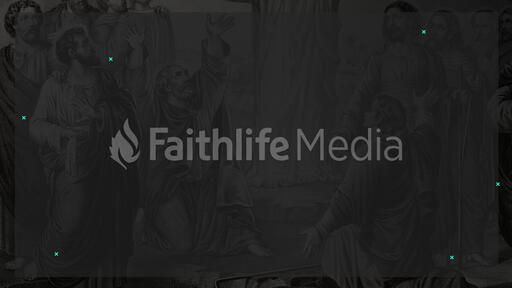Who's your Jethro?
Sermon • Submitted • Presented
0 ratings
· 2 viewsNotes
Transcript
Wise Leadership: The Power of Delegation
Wise Leadership: The Power of Delegation
Bible Passage: Exodus 18:13–27
Bible Passage: Exodus 18:13–27
Summary: In this passage, Moses' father-in-law Jethro observes Moses' heavy burden of leadership and offers pragmatic advice to delegate responsibilities to capable leaders among the people, demonstrating the importance of shared leadership.
Application: This sermon encourages Christians to recognize their own limitations and the necessity of sharing responsibilities within the community. By adopting a model of delegation, individuals can alleviate burdens and foster collective growth, leading to a healthier church environment.
Teaching: This sermon teaches the value of wise leadership and the biblical principle of delegation. It emphasizes that effective leadership is not a solo endeavor but rather a collaborative effort that promotes strength and resilience among God's people.
How this passage could point to Christ: Christ is portrayed as the ultimate leader who delegates authority to His disciples, empowering them for ministry. Just as Jethro’s advice gave Moses a sustainable leadership model, Christ’s teachings and empowerment enable believers to work together effectively in His mission.
Big Idea: Effective leadership involves recognizing our limitations and empowering others to share the load, reflecting Christ's leadership style in the church.
Recommended Study: As you prepare this sermon, consider examining the cultural context of leadership in ancient Israel using your Logos library to understand the significance of Jethro's role. Look for insights on delegation and teamwork in biblical narratives, and consult commentaries that discuss the implications of leadership dynamics present in Exodus 18. This will enrich your approach to application in contemporary church settings.
1. Perceiving the Problem
1. Perceiving the Problem
Exodus 18:13-16
You might explore how Moses, overwhelmed by his leadership responsibilities, encounters wise counsel from Jethro. This situation highlights Moses' initial struggle to manage all matters alone—a reminder that leaders aren't meant to carry every burden by themselves. Consider discussing how identifying personal limits can open opportunities for involving others, relieving stress, and enhancing community well-being, similar to how Jesus empowered His disciples for shared ministry.
2. Presenting the Proposal
2. Presenting the Proposal
Exodus 18:17-23
You could delve into Jethro's advice to Moses, urging him to select capable leaders to share the load. Jethro's insights, grounded in wisdom, present a model of delegation that resonates with how Jesus entrusts His followers with tasks in His ministry. By following this biblical guidance, churches can harness the collective strength of their community, showing how Christ-centered leadership involves empowering others.
3. Practicing the Plan
3. Practicing the Plan
Exodus 18:24-27
Perhaps consider focusing on how Moses heeds Jethro's advice and implements the suggested delegation system, leading to efficient leadership. This passage illustrates the positive outcomes of wise decision-making and sharing responsibilities—principles Jesus exemplified through His inclusive approach. Encourage reflection on how adopting such strategies can lead to healthier, more flourishing communities, reducing burnout and fostering sustainable ministry.
Pachomius mentored by personal example and passed on this practice to Theodore, his eventual successor, by teaching him that a leader should be the first to keep the Rule and thus lead and disciple by example.
Edward L. Smither




